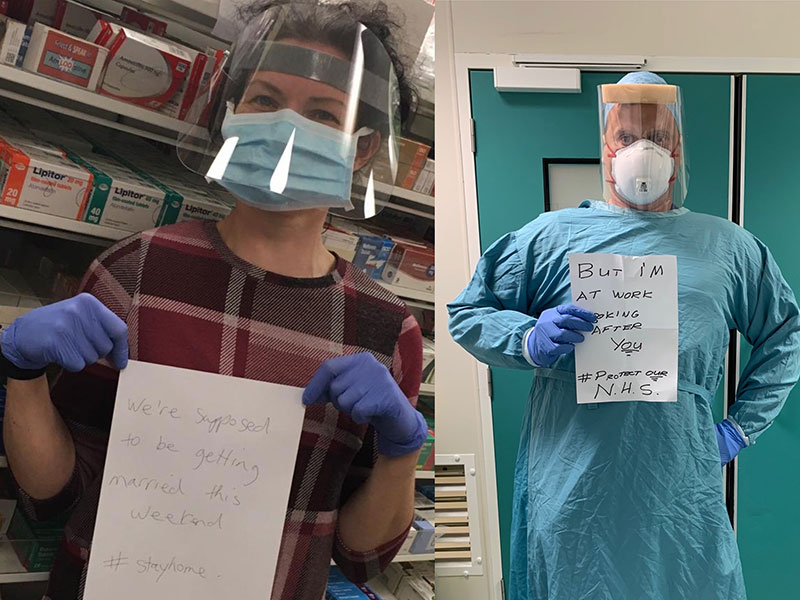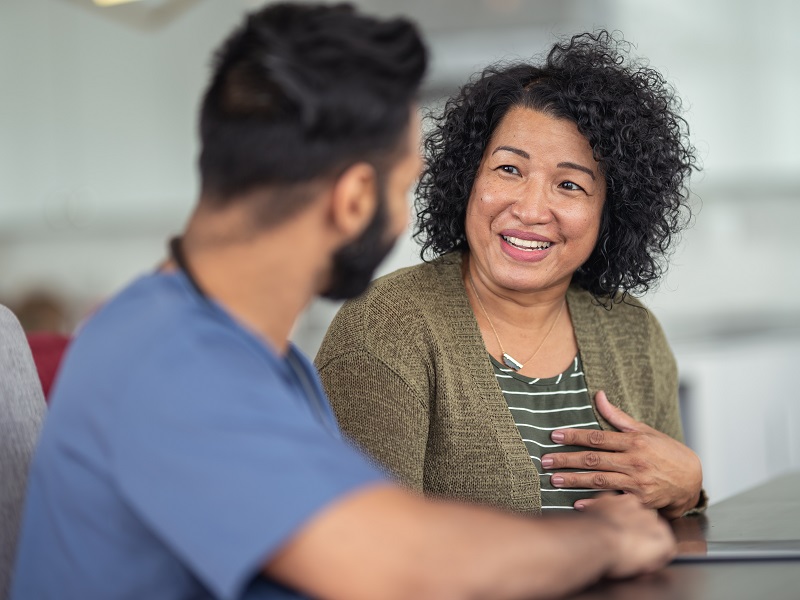Nusrat is a HCPC registered dietitian (specialist diabetes) working across GP surgeries in Primary Care Networks in Yorkshire.
To mark South Asian Heritage Month 2021, Nusrat candidly shares her story and details the reality of what she has experienced in the health and care sector as a South Asian woman.
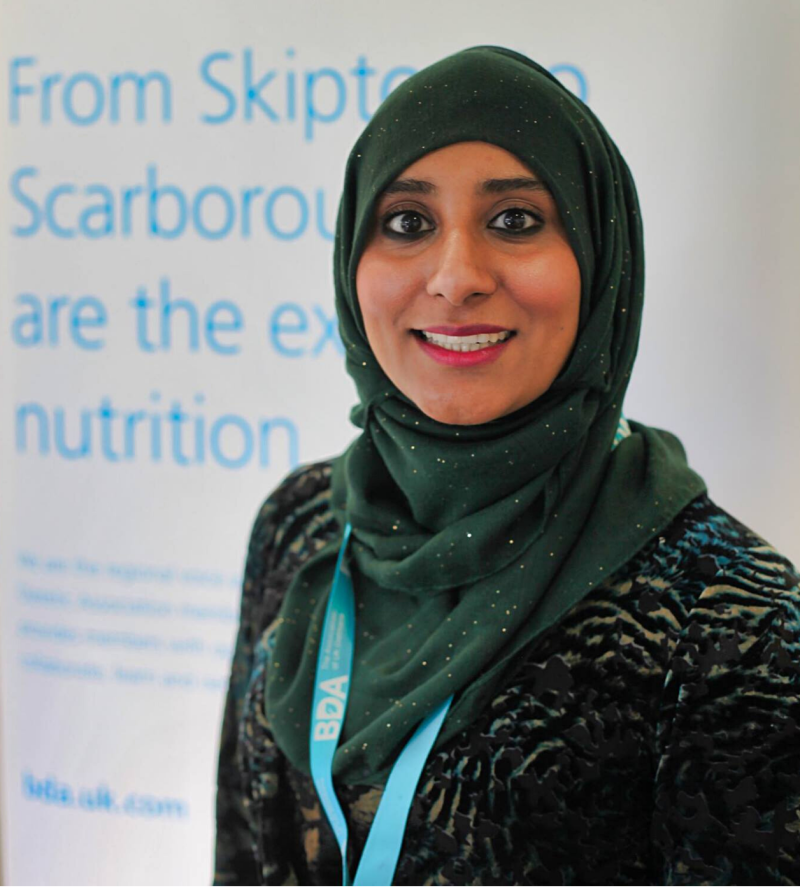
I currently work in GP surgeries in two different Primary care Networks (PCN’s), this is where lots of GPs have got together in their area and share resources. I cover around 14 GP surgeries. I mainly support people with type 2 diabetes to improve their diabetes or work with them achieve their diabetes goals e.g. weight loss or achieving remission.
In addition to NHS work, I do some private work in sports, exercise and diabetes. I have a creative nutrition business where we make patient explainer videos for first line dietary advice, create engaging nutrition posts and help mentor future nutritionists or dietitians. I also enjoy volunteering for the British Dietetic Association as Chair of the Yorkshire Branch and Diabetes UK as an events volunteer.
What inspired me to become a health and care professional
I knew from a young age I wanted to care for patients. However, I wanted to work in a unique way with patients, so I looked at other allied health professional roles for inspiration. I have always had an interest in nutrition and health, so when I saw the role of a dietitian, I knew I had found the perfect profession for me. I haven’t regretted my choice of profession and I am always looking for the next challenge.
My experience of working in the health and care sector as someone with South Asian heritage hasn’t always been positive.
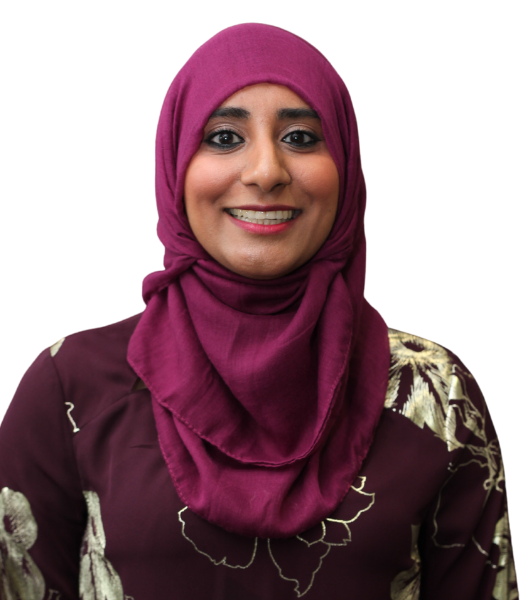
I have been called names, been the token South Asian, been asked inappropriate questions and been told “I don’t even see the scarf or your skin colour” (confused face). I have experienced racism from patients and other staff, received unfair treatment compared to other Caucasian colleagues and often felt sorry for myself.
I have sometimes tried to challenge the situations and other times I haven’t had it in me and have moved from roles due to “personality” clashes. Sometimes, I think this is because I am South Asian and other times, I think it can just come down to professional or shall we say non-professional jealousy. Especially, it seems if you are trying to better yourself or your profession.
I am still reflecting and trying to understand some of the experiences I have had over the years. As well as pondering on others from other diverse backgrounds who have gone through similar. However, majority of my experiences are positive, and I have met and worked with some wonderful people and made some supportive friends over the years, from diverse backgrounds, job roles, ages and social circles.
Why Equality, Diversity and Inclusion is important to me
Equality, Diversity and Inclusion (EDI) is important to me as it tries to ensure fair treatment and the same opportunities for all. It tries to eradicate prejudice and discrimination based on an individual or group of individual's protected characteristics. I think despite working in healthcare for 13 years, the same sort of issues continue to exist and do not seem to be getting better. Yes, there are some South Asian individuals who are in leadership positions but it is nowhere as good as it could and should be.
In all the roles I have worked, I have yet to see a South Asian Dietitian who is the head of a dietetics department, a clinical dietetic manager, a “Band 7” manager of a team, Chair of the BDA, Chair of an England board or in an executive position on a trust or health board. This is in West Yorkshire where there is a highly diverse population!
I want this to be the norm, not just in my profession but across the health and care professions, so that the patients and staff we look after can hopefully be treated fairly and have the same opportunities as others.
I joined the HCPC EDI Forum to ensure I can “be a voice, not an echo” and share my experiences and try to actively get involved in making a difference and being part of change. It was powerful to hear others going through the same thing and working collaboratively to make things better for the future (if that is possible).
But being part of the process of “doing” has been rewarding and has allowed me to support the HCPC to have a better understanding of the issues faced as a South Asian woman in the health and care sector currently. I have hope.
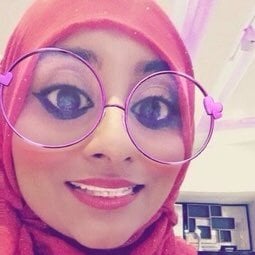
- Cyhoeddwyd:
- 12/08/2021
- Resources
- In your words
- Audience
- Cofrestredig
- Profession
- Dietitians

